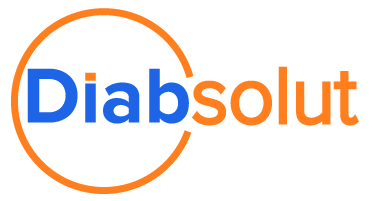How to Clean Up Your CRM Data to Improve Functionality and ROI
Author: Amruta Kulkarni 
Aside from causing frustration, data inaccuracies can translate to incorrect or incomplete reports, potential information gaps, and process inefficiencies — which can negatively impact your customers’ experience, your operations, and your business. Incorrect data can also potentially lead to customer churn and employee attrition.
This blog will review where to start in order to clean up your customer relationship management (CRM) system’s data to avoid these issues, as well as provide tips to help guide you through the data clean up process.
CRM Data Clean Up: Where to Start
Diabsolut does a lot of data transfer and clean-up for organizations that are transitioning to a new CRM system (specifically to the Salesforce CRM), to ensure clean data best practices are in place before those organizations gain a solution that links CRM data across different areas of their business. This is often done or overseen during the implementation project itself.
That said, regardless of your CRM system, if your data is more reliable, it provides more benefits — and looking into your organization’s data management policy and practices is a great place to start.
- Without standards and consistency, you have no way of establishing what data is relevant.
-
- Does your organization have a data management strategy and processes currently in place?
-
- When was the last time that strategy and those processes were reviewed?
-
- How do they compare to clean data best practices?
- Review your CRM system’s data management capabilities alongside your business goals; your CRM should be serving as your organization’s central hub for data, or it’s “single source of truth,” to help maintain data hygiene.
-
- Are they compatible, or do you need a more robust CRM system to help achieve your organization’s objectives?
-
- Even if you’re not planning on updating your CRM system, it’s helpful to create short- and long-term plans to improve data management practices.
-
-
- Include your team(s) when creating these plans and discuss how to address challenges like entering data quickly, completely, and correctly.
-
- Get outside help or advice if needed, as reliable data is critical to most business and operational processes — and will impact overall solution functionality and ROI.
Tips for Cleaning Up your CRM Data
With set standards, a strategy, and inclusion of best practices, you can move forward with cleaning up your CRM data:
- If your system has user permission capabilities, reconfigure them to make sure only the right users can make changes.
- Put validations in place to ensure the right data is entered, to help maintain data consistency.
- Do a solution health check to eliminate clean data issues related to faulty integration, automations, or workflows.
- Remove data that is outdated or no longer necessary.
-
- This includes old or inactive accounts with data that can’t be confirmed; follow-up with account contacts to verify and update information as needed.
-
- Bounced emails can be tracked and organized if your organization is using Marketing Cloud Account Engagement.
-
- Adding data retention policy automation will delete unnecessary data when it has expired and is no longer needed.
- Delete or merge duplicate data and fix errors.
-
- If you’re currently using the Salesforce CRM, they have a free training module that gives information on Salesforce’s duplicate management feature and improving data quality.
- Fill in missing information.
-
- If your CRM has the capability to make the necessary fields required, it will help ensure data is complete moving forward.
Clean Data Next Steps
Again, make sure your team is involved and understands the importance of keeping your CRM data clean moving forward.
- Address gaps in CRM user training.
- Schedule regular data maintenance.
- Communicate about updated standards, policies, and processes to deal with issues quickly and effectively; creating a clean data guide or documentation to reference is also helpful.
If your organization needs CRM or data management advice, is looking for a CRM with better functionality, or is struggling with your Salesforce CRM or overall solution performance — contact us.
- Learn more about how customer data can help drive better decision making.
- Get tips on how to ensure your solution implementation is successful.
- If your organization is unsure if Salesforce Sales Cloud or Service Cloud is the right CRM for your business, we can help.
Search
Trending Topics
- E18: Click FSE Migration to Salesforce Field Service – Java With Sugar Podcast
- E17: The Process of Migrating from a Product That Is Retiring – Java With Sugar Podcast
- E16: Decoding FSE’s End-of-Life and Common Migration Practices – Java With Sugar Podcast
- A Dual Approach to Efficiency in Field Service Management: Asset-Centric vs. Customer-Centric Models
- E15: Trends and Limitations in AI – Java With Sugar Podcast
- Enhancing Field Service Operations with SFS-X
- E14: Our Point of View and Insights on AI – Java With Sugar Podcast
- E13: What Is Artificial Intelligence and Why Is It Beneficial for You? – Java With Sugar Podcast
- AI Ethics: What Is It and Why Does It Matter?
- 3 Tips to Improve Your Strategy and ROI When Selecting SaaS Solutions
